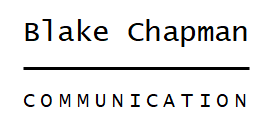“…For a long time, I relied on my research training and use of rigorous scientific knowledge to try to meet my communication objectives, but I didn’t get far. Surprisingly for me, it wasn’t until I allowed myself to fall back on just being a human that I really started to make positive headway in having meaningful conversations with people about sharks. While my focus has been on the topic of ‘sharks’, the insight I developed could easily be interchanged for ‘vaccines’, ‘agriculture’, ‘reproductive medicine’, or any of the myriad other research fields that involve emotionally-fuelled, ethical debates over what constitutes right and wrong.
Scientific discovery is unquestionably exciting. However, the critical reliance on technical detail, statistical significance and reproducibility unfortunately tends to produce rigid, to-the-point scientific publications. The process works well for scientists communicating with their peers, as the exciting ramifications of the data can be more easily deduced by these specialised audiences. But ‘science speak’ doesn’t often lead to opportunities for greater impact. I learned that for science to make real waves within the broader community, we need to be prepared to invite in the ‘human-factor’. This can be quite confronting, because, well, humans are unpredictable and carry all of the emotional baggage that has been purposefully removed from science….”
Check out my full essay on how being human led me to better science – and science communication – outcomes!
https://www.sciencewritenow.com/essays-craft-memoir/being-human
